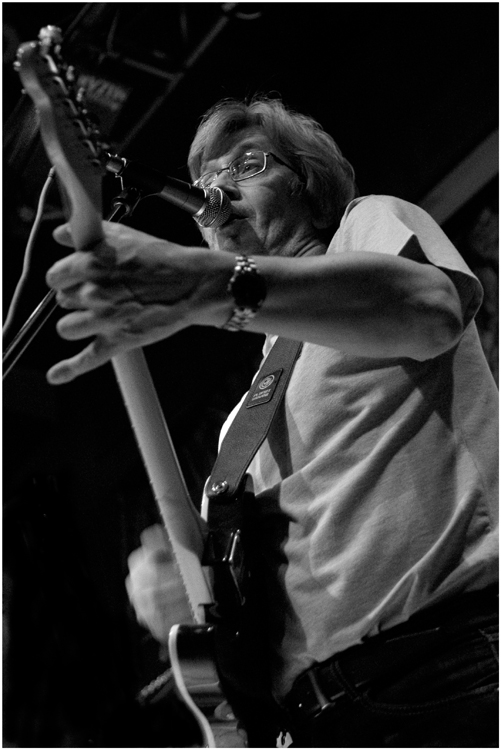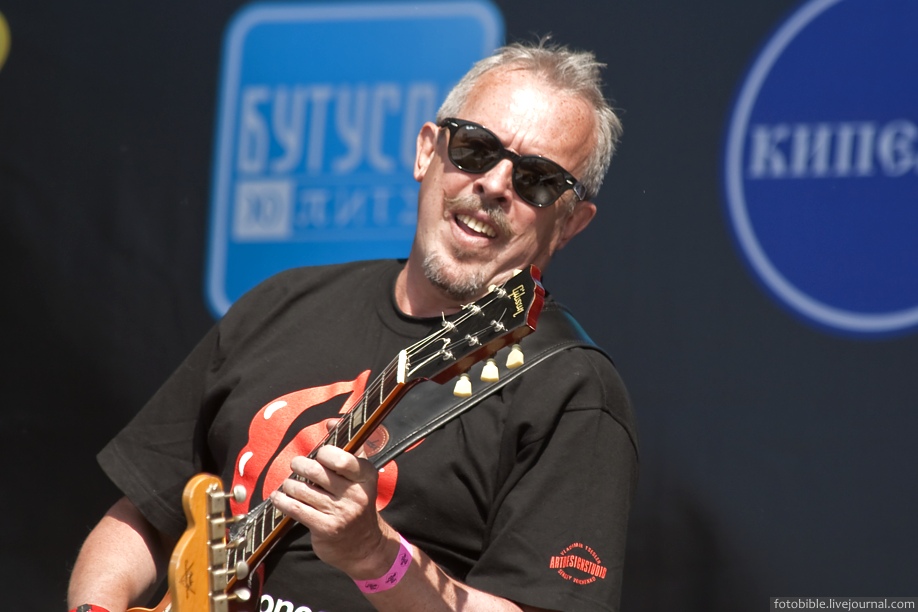|
Voskreseniye
Voskreseniye (russian: Воскресение) is a Russian rock band. History The band was formed in 1979, when drummer Sergey Kavagoe decided to leave Mashina Vremeni and form his own group. Kavagoe was joined by Mashina Vremeni's bassist, Evgeny Margulis. Alexey Romanov became the group's leader and songwriter, and Alexey Makarevich joined as guitarist. During this period the band released the successful albums ''Voskreseniye 1'' () and ''Voskreseniye 2'' (). In 1980, Margulis left the group, after being invited to join the group Araks, and Konstantin Nikolsky, Andrey Sapunov, and Mikhail Shevyakov joined the line-up. In August 1982, Romanov and the group's sound engineer, Alexander Arutyunov, were arrested and charged with private entrepreneurial activity. The band went on a hiatus from 1982 to 1994, and former members played in several other groups. Romanov, Sapunov, Nikolsky, and Shevyakov reunited in 1989 to play at the Druzhba arena in a concert celebrating the group' ... [...More Info...] [...Related Items...] OR: [Wikipedia] [Google] [Baidu] |
Evgeny Margulis
Evgeny Shulimovich Margulis (russian: Евге́ний Шу́лимович Маргу́лис; born 25 December 1955) is a Russian rock and blues musician. He was a member of the bands Mashina Vremeni (1975-1979, 1990-2012) and Voskreseniye (1979-1980, 1994-2003) and currently performs solo. He is considered a "guru" of Moscow rock ‘n’ roll. In 1999, he was awarded the title of Meritorious Artist. Biography Evgeny Margulis was born in 1955 in Moscow to a middle-class family of Jewish descent. His father was an engineer and his mother was a high school teacher. Margulis originally planned to become a doctor, but decided to change his career plans: at the age of 19 he joined the well-known band Mashina Vremeni as a guitarist. Margulis played in the group until 1979, when he left with the drummer Sergey Kavagoe, with whom he co-founded another group Voskreseniye, where he played until 1980. In the 1980s, Margulis played in numerous groups, including Araks, Nautilus, and Yur ... [...More Info...] [...Related Items...] OR: [Wikipedia] [Google] [Baidu] |
Konstantin Nikolsky
Konstantin Nikolaevich Nikolsky (russian: link=no, Константин Николаeвич Никольский; born 1 February 1951 in Moscow) is a Russian rock musician, singer, guitarist and songwriter. He has played with a lot of Russian bands, including Voskreseniye and Tsvety. Biography He started back as an amateur in the late sixties with Moscow band "Atlants" with Alexander Sikorsky. He worked in official bands during the '70s, most notably a guitarist for Stas Namin band "Tsvety" and "Festival". Working for Festival he wrote songs for films. In the summer of '81 he joined the band Voskreseniye as a songwriter and guitarist. Writing hit songs such as "O Chem Poyot Nochnaya Ptitsa" ("Of What the Night Bird Sings") and "Zerkalo Mira" ("The Mirror of the World"), the band shot to fame, and these songs became instant classics. He only recorded one album with Voskreseniye: "Voskreseniye 2". It was recorded in a basement of an old office over three days, and is perhaps the m ... [...More Info...] [...Related Items...] OR: [Wikipedia] [Google] [Baidu] |
Russian Rock
Rock music became known in the Soviet Union in the 1960s and quickly broke free from its Western roots. According to many music critics, its "golden age" years were the 1980s (especially the era of perestroika), when the Soviet underground rock bands became able to release their records officially. Since then, Russia and Russophone artists in various other countries have developed a varied rock scene that covers virtually all rock genres, from classic and alternative rock to punk and heavy metal. The majority of the Russian bands perform in the Russian language. According to various polls, the most popular Russian rock bands include Kino, Aquarium, Aria, Alisa, Agatha Christie, and DDT. History The early 1960s: Local bard music and first western influences Prior to the late sixties, music in the Soviet Union was divided into two groups: music published by state record company Melodiya, and everything else. Under this second group were the bards, underground folk singer–son ... [...More Info...] [...Related Items...] OR: [Wikipedia] [Google] [Baidu] |
Mashina Vremeni
Mashina Vremeni () is a Russian rock band founded in 1969. Mashina Vremeni was a pioneer of Soviet rock music and remains one of the oldest still-active rock bands in Russia. The band's music incorporates elements of classic rock, blues, and bard's song. Mashina Vremeni's best known members are Andrei Makarevich (founder, principal singer-songwriter, public face of the band), Alexander Kutikov (bass player and producer/sound engineer), and Evgeny Margulis (guitarist/songwriter). History Andrei Makarevich's musical career can be traced to a school band called The Kids, which was made up of two male guitarists and two female vocalists. The group sang mostly English-language folk songs and performed primarily at talent shows put on in Moscow schools. According to Makarevich, the momentous event in his musical career came when the Soviet group VIA Atlanty () visited his school and allowed him to play a couple of songs on their equipment during a break in the performance. O ... [...More Info...] [...Related Items...] OR: [Wikipedia] [Google] [Baidu] |
Moscow
Moscow ( , US chiefly ; rus, links=no, Москва, r=Moskva, p=mɐskˈva, a=Москва.ogg) is the capital and largest city of Russia. The city stands on the Moskva River in Central Russia, with a population estimated at 13.0 million residents within the city limits, over 17 million residents in the urban area, and over 21.5 million residents in the metropolitan area. The city covers an area of , while the urban area covers , and the metropolitan area covers over . Moscow is among the world's largest cities; being the most populous city entirely in Europe, the largest urban and metropolitan area in Europe, and the largest city by land area on the European continent. First documented in 1147, Moscow grew to become a prosperous and powerful city that served as the capital of the Grand Duchy that bears its name. When the Grand Duchy of Moscow evolved into the Tsardom of Russia, Moscow remained the political and economic center for most of the Tsardom's history. When th ... [...More Info...] [...Related Items...] OR: [Wikipedia] [Google] [Baidu] |
Russian SFSR
The Russian Soviet Federative Socialist Republic, Russian SFSR or RSFSR ( rus, Российская Советская Федеративная Социалистическая Республика, Rossíyskaya Sovétskaya Federatívnaya Socialistíčeskaya Respúblika, rɐˈsʲijskəjə sɐˈvʲetskəjə fʲɪdʲɪrɐˈtʲivnəjə sətsɨəlʲɪˈsʲtʲitɕɪskəjə rʲɪˈspublʲɪkə, Ru-Российская Советская Федеративная Социалистическая Республика.ogg), previously known as the Russian Soviet Republic and the Russian Socialist Federative Soviet Republic as well as being unofficially known as Soviet Russia,Declaration of Rights of the laboring and exploited people, article I. the Russian Federation or simply Russia, was an Independence, independent Federalism, federal socialist state from 1917 to 1922, and afterwards the largest and most populous of the Republics of the Soviet Union, Soviet socialist republics of the So ... [...More Info...] [...Related Items...] OR: [Wikipedia] [Google] [Baidu] |
Druzhba Multipurpose Arena
The Druzhba Multipurpose Arena (russian: Универсальный спортивный зал "Дружба") is an indoor arena in Moscow, Russia, part of the Luzhniki Sports Complex. It was built in 1979, and the first competition held there was the finals of the 7th USSR Summer Spartakiad. It hosted volleyball preliminaries of the 1980 Summer Olympics and was a venue of the 1986 Goodwill Games (women's basketball, freestyle wrestling, judo and handball events were held there). The capacity of the arena is for 3,500 people and is the regular home venue of WVC Dynamo Moscow Volleyball team.Игровые залы Notes References [...More Info...] [...Related Items...] OR: [Wikipedia] [Google] [Baidu] |
Cruise (band)
Cruise (Kruiz, russian: Круиз) is a Heavy metal music, heavy metal band from the former Soviet Union. Started in 1980 as a government-controlled soft rock and Pop music, pop act, the band enjoyed great success all across the USSR before the revocation of their license to perform/record in 1984 as part of the state's brief crackdown on the Western culture. In 1985, founding member and guitarist Valery Gaina reformed the band with a completely different lineup that featured him on lead vocals. This was followed by a major shift in the overall sound and image; from pop rock to Heavy metal music, heavy metal. In 1987, the band officially released their debut album "Kruiz-1" as a metal band, selling one million of legal copies. Outside Russia, they are best known for their video, ''In Flames'', which was played many times in the mid-1980s, on the Canada, Canadian metal show, The Power Hour. Having released their debut English language album in 1988, Kruiz toured extensively in Ru ... [...More Info...] [...Related Items...] OR: [Wikipedia] [Google] [Baidu] |
Pavel Smeyan
Pavel Yevgenyevich Smeyan (russian: link=no, Павел Евгеньевич Смеян; born 23 April 1957, Moscow, Russia – died 13 July 2009) was a Russian singer and actor. He died of cancer in a hospital in Germany at age of 52. Russia IC. Retrieved 21 July 2009. He graduated from the Gnesins' State Institute of Music majoring in the saxophone. /ref> He played in various philharmonics, and worked in Rosconcert and the Lenkom Theatre. He dubbed and played roles and recorded songs for more than 20 movies and animations including '' |
Olympic Stadium (Moscow)
Olympic Stadium (russian: Олимпийский стадион) (known locally as Olimpiyskiy) was an indoor arena, located in Moscow, Russia. It was built for the 1980 Summer Olympics and, divided into two separated halls, hosted the basketball and boxing events. It closed in March 2019 and was demolished, for the construction of a new complex, in 2020. Events Sports A part of the "Olimpiyskiy Sports Complex", it made up one architectural ensemble with another venue, constructed at the same time, the Swimming Pool. Its capacity was 80,000 people, and the stadium could hold up to 16,000 people for televised events. In May 2014, the Government of Moscow auctioned 65% of shares in the stadium that it previously controlled. Oil company ZAO Neftegazprod won the auction, paying ₽4,672 billion rubles (approximately €100 million euros). Sporting events held at the stadium included the Davis Cup finals and the Kremlin Cup tennis tournament. It was the world's first indoor bandy ... [...More Info...] [...Related Items...] OR: [Wikipedia] [Google] [Baidu] |
Musical Groups From Moscow , the ability to perceive music or to create music
*
{{Music disambiguation ...
Musical is the adjective of music. Musical may also refer to: * Musical theatre, a performance art that combines songs, spoken dialogue, acting and dance * Musical film and television, a genre of film and television that incorporates into the narrative songs sung by the characters * MusicAL, an Albanian television channel * Musical isomorphism, the canonical isomorphism between the tangent and cotangent bundles See also * Lists of musicals * Music (other) * Musica (other) * Musicality Musicality (''music-al -ity'') is "sensitivity to, knowledge of, or talent for music" or "the quality or state of being musical", and is used to refer to specific if vaguely defined qualities in pieces and/or genres of music, such as melodiousness ... [...More Info...] [...Related Items...] OR: [Wikipedia] [Google] [Baidu] |
Russian Rock Music Groups
Russian(s) refers to anything related to Russia, including: *Russians (, ''russkiye''), an ethnic group of the East Slavic peoples, primarily living in Russia and neighboring countries *Rossiyane (), Russian language term for all citizens and people of Russia, regardless of ethnicity *Russophone, Russian-speaking person (, ''russkogovoryashchy'', ''russkoyazychny'') *Russian language, the most widely spoken of the Slavic languages *Russian alphabet *Russian cuisine *Russian culture *Russian studies Russian may also refer to: *Russian dressing *''The Russians'', a book by Hedrick Smith *Russian (comics), fictional Marvel Comics supervillain from ''The Punisher'' series *Russian (solitaire), a card game * "Russians" (song), from the album ''The Dream of the Blue Turtles'' by Sting *"Russian", from the album ''Tubular Bells 2003'' by Mike Oldfield *"Russian", from the album '' '' by Caravan Palace *Nik Russian, the perpetrator of a con committed in 2002 *The South African name for a ... [...More Info...] [...Related Items...] OR: [Wikipedia] [Google] [Baidu] |



